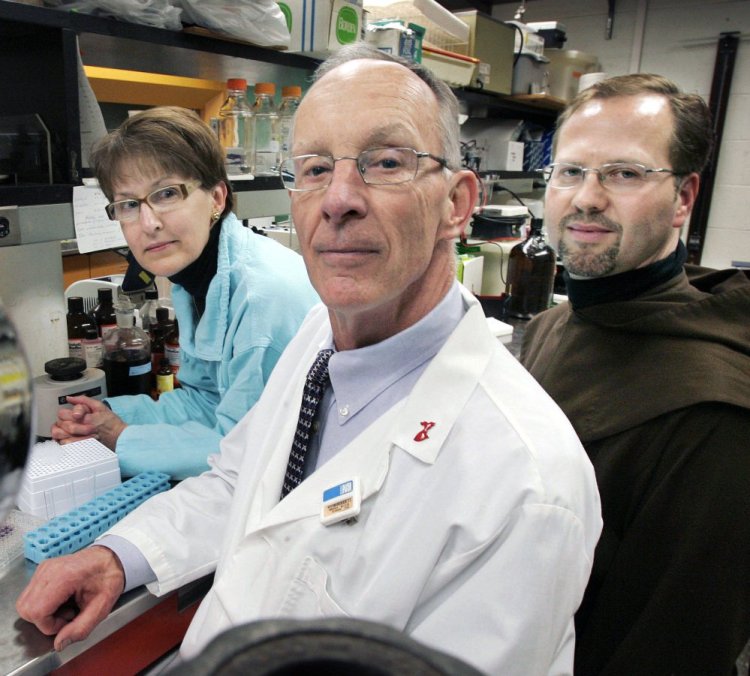A former Roman Catholic monk has filed a federal lawsuit against cosmetics giant L’Oreal, accusing the company of stealing patented technology in an anti-aging wrinkle cream that his charity was selling to raise money for the poor.
Dennis Wyrzykowski and his company, Carmel Laboratories LLC, have been joined in the lawsuit by the University of Massachusetts Medical School, which developed the technology and licensed it to Carmel in 2009.
According to the lawsuit, the cream, called Easeamine, is made using technology inspired by a discovery by two UMass scientists that adenosine, a chemical compound found in the heart, can promote skin elasticity.
The lawsuit alleges L’Oreal was aware UMass held the patent for the science. It alleges L’Oreal had been denied patents because of their similarity to those granted to UMass, but the cosmetic company went ahead with a line of products based on the adenosine technology.
Wyrzykowski, who leads a religious charity known as the Teresian Carmelites in Millbury, Massachusetts, said in an interview Tuesday that he was selling the cream online for $65 per tube to support the Carmelites work with prisoners, drug addicts and school children.
“For me, L’Oreal pillaged the poor, that’s what they did,” Wyrzykowski said.
L’Oreal, which is based in Paris and has U.S. operations in New York, has asked a federal judge in Delaware to dismiss the lawsuit. The company’s attorneys argue in court documents that L’Oreal believes its use of adenosine falls outside the University of Massachusetts patents.
“While we admire the purpose of the work these two organizations are doing together, we find no merit in these allegations,” L’Oreal said in an email Wednesday to The Associated Press. “We expressed this point of view in many conversations we had with the Teresian Carmelites and their outside legal advisers over the past two years.”
Mark Shelton, a spokesman for the UMass Medical School, said they were not involved in drafting or filing the lawsuit, but became plaintiffs because they are obligated to protect the licensing agreement with Carmel.
The Catholic Church withdrew recognition for the Teresian Carmelites in 2008, saying they no longer met the criteria to be a Catholic organization. But the group continued as a nondenominational, nonprofit with about 15 members, Wyrzykowski said.
“We’ve basically turned it into a foundation because we were no longer able to sustain what we were doing because of what L’Oreal did,” he said.
The lawsuit seeks unspecified damages.
Send questions/comments to the editors.



Success. Please wait for the page to reload. If the page does not reload within 5 seconds, please refresh the page.
Enter your email and password to access comments.
Hi, to comment on stories you must . This profile is in addition to your subscription and website login.
Already have a commenting profile? .
Invalid username/password.
Please check your email to confirm and complete your registration.
Only subscribers are eligible to post comments. Please subscribe or login first for digital access. Here’s why.
Use the form below to reset your password. When you've submitted your account email, we will send an email with a reset code.